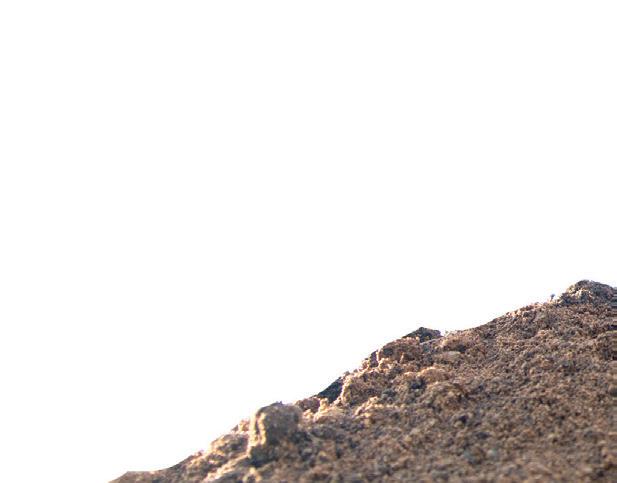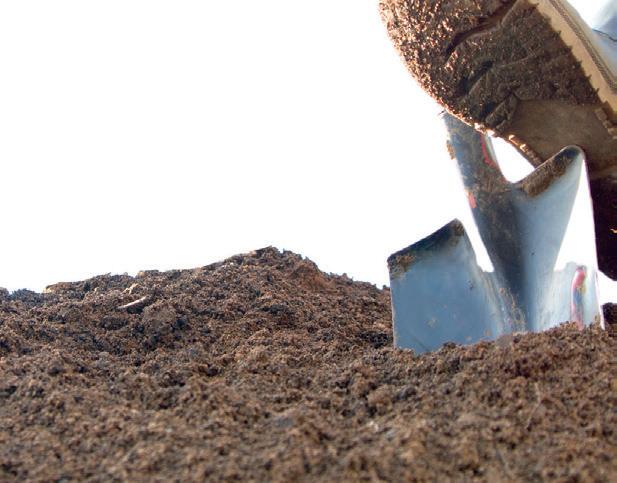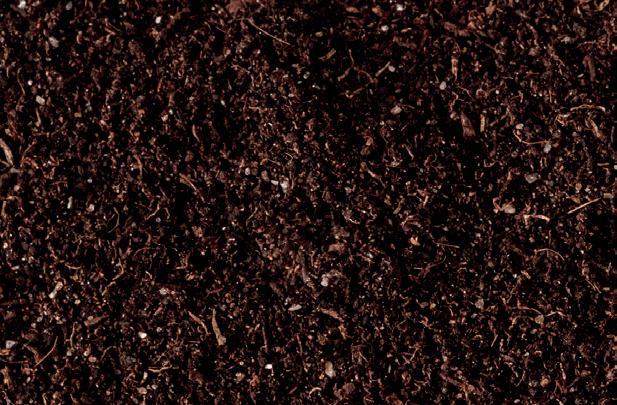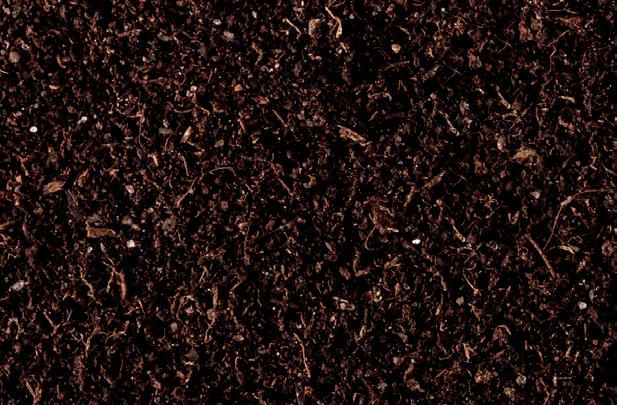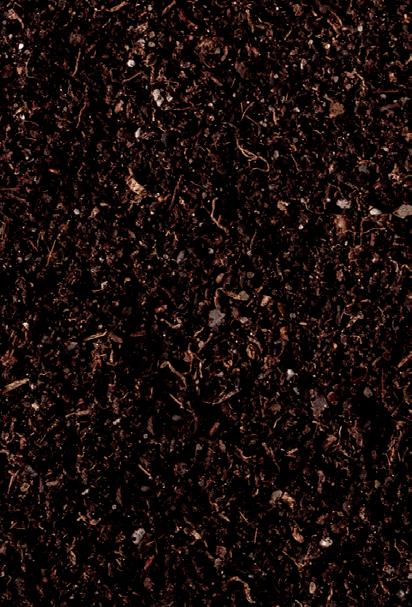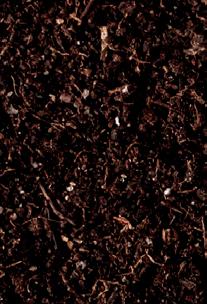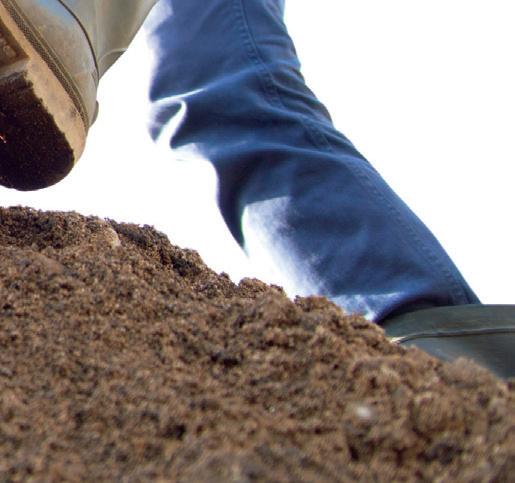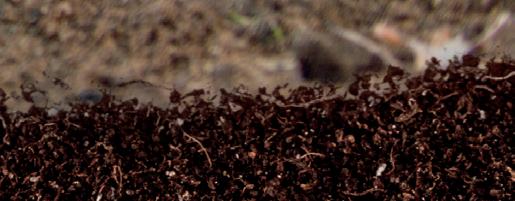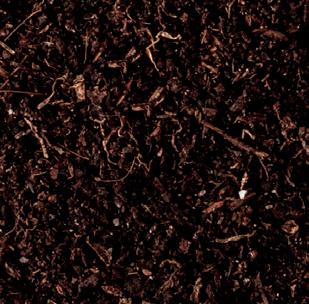












I am excited for us to distribute this inaugural edition of our new quarterly magazine, The Service Line. In this magazine, our team will ensure you remain in the know through articles about company and employee accomplishments, ongoing and upcoming system projects, position recruitment, best practices for maintaining services and much more.
As a publicly owned utility, our goal at Clarksville Gas & Water is to provide personal customer service while delivering essential gas, water and sewer services in compliance with the highest standards of safety, reliability and efficiency. Being publicly owned ensures we are directly accountable to the citizens we serve, as decisions regarding system needs are made through local governance, rather than by others outside of our community.
Additionally, we serve our community by playing a valuable role in broadening our local tax base through industrial recruitment, improving the local economy, creating jobs and ensuring our local dollars stay here at home. We do this while making sure each customer rate class pays its fair share for system
capacity and services actually used, safeguarding against any one group or individual subsidizing another.
I believe we are living in our best times here at Clarksville Gas & Water, as we find ourselves to be at the forefront of our industry in operations, material traceability and technology, being well out in front of pending upcoming rules and regulations, and taking an active role with partner associations in the promotion of our industry. We continue to traverse a progressive course across all three divisions, which establishes increased efficiency, resilience and capacity for our gas, water and sewer customers.
Lastly, I would be remiss if I did not mention our greatest asset of all, our employees. These exceptional individuals are better trained, more proficient and better equipped than they have ever been in my 28 years of employment with the city. The care for—and from—our employees, along with the commitment to increasing their professional development, has proven to directly enhance their ability and enthusiasm to serve.
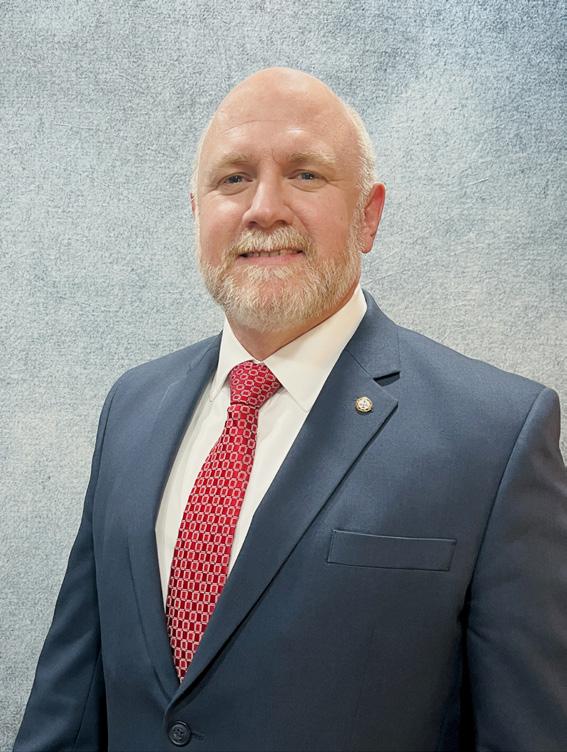
It states in 1 Peter 4:10, “As each has received a gift, use it to serve another, as good stewards of God’s varied grace.” I believe a person’s calling in life can be found at the place where their gifts and the world’s needs meet. Our employee family makes me so very proud by showing every day they are truly answering the Lord’s call in their lives and in their service to you in our community.
I look forward to sharing more information about your Clarksville Gas & Water Department with you in the upcoming months.
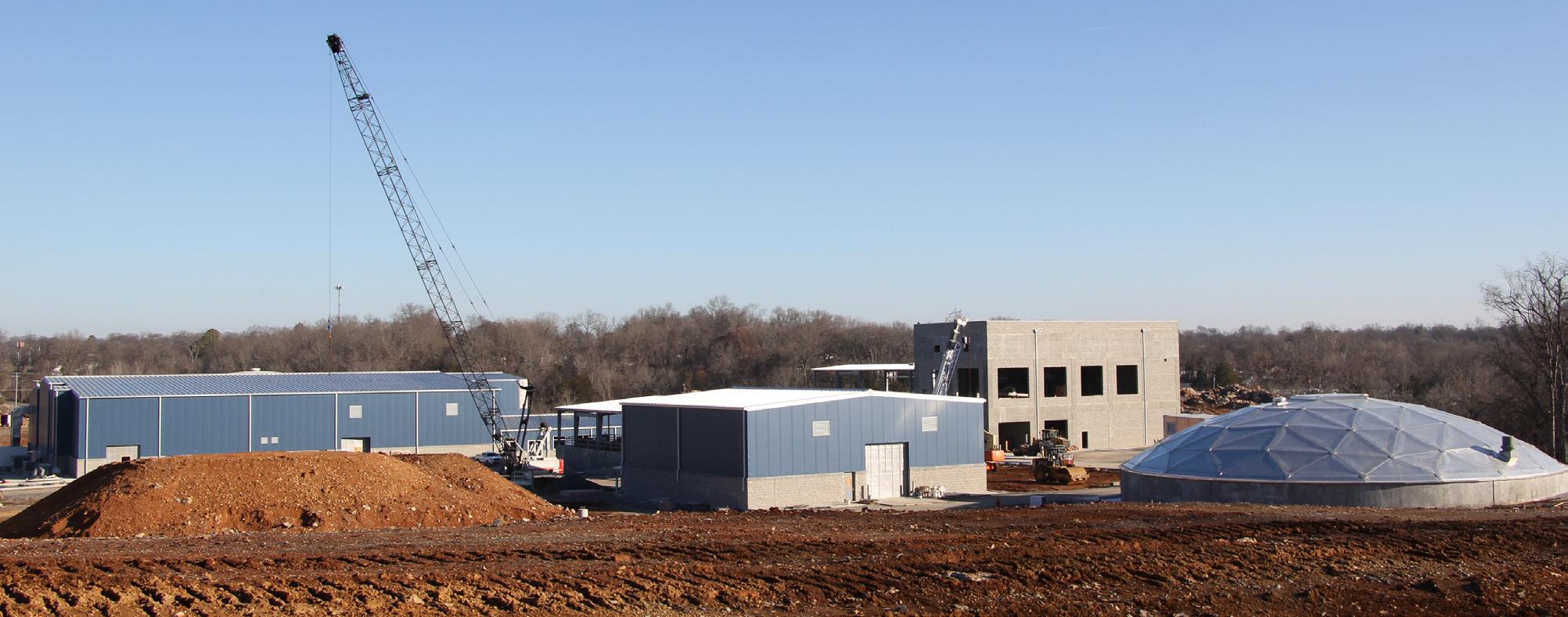
Underground utility lines supply homes and businesses with power, water, sewer, internet, natural gas and other important services. To protect this infrastructure, the operators of underground utilities need to know when excavation work is planned in their service areas.
Tennessee 811, the statewide “Call Before You Dig” service, was formed to streamline the process of letting utility companies know they need to mark their lines to give excavators an aboveground indicator of the presence of an underground line.
Whether you’re planning a small job, such as planting a tree, or a large earthmoving job, one easy phone call to 811 at least three working days before digging

connects you with your Tennessee 811 service center. Provide the representative with the digging site location, start date and important information about the work. An order is placed for a professional locator to mark underground lines with paint, flags or both.
Once the lines have been marked, respect the markings and dig around them cautiously. Buried lines may be at a shallow depth.
Hitting an underground utility line while digging can cause serious injuries, disrupt critical service to entire neighborhoods, and potentially result in fines and repair costs.
Professional excavators and even other utility operators also use this free service when they need to dig. So, when a
contractor is hired to install a swimming pool or a utility company needs to restore a critical service, property owners in the area may see temporary markings in their yards. These markings play an important role in protecting utility lines and the safety of people living or working nearby, so they should be left in place until the work is completed.
In Tennessee, it’s not only the law to call 811 first, but it’s the safe thing to do for you, your family and the community.
Learn more about 811 by visiting www.tenn811.com.
Number of 811 locate tickets received by Clarksville Gas & Water
Dec. 5, 2023, to Dec. 5, 2024
1,361 Emergency 19,316 Water
19,316 Gas 20,600 Sewer
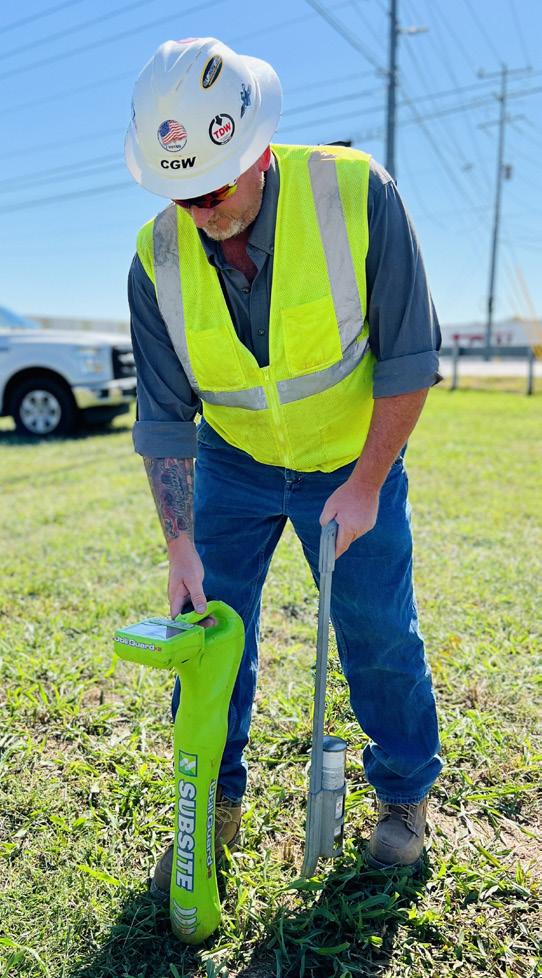
Color of Paint or Flag What It Represents
White Proposed Excavation
Pink Temporary Survey Markings
Red Electric Power Lines, Cables, Conduit and Lighting Cables
Yellow Gas, Oil, Steam, Petroleum or Gaseous Materials
Orange Communication, Alarm or Signal Lines, Cables or Conduit
Blue Potable Water
Purple Reclaimed Water, Irrigation and Slurry Lines
Green Sewers and Drain Lines
YES. Even projects you might think are small, like planting a garden, require you to contact 811.
I am only planting a small flower bed or bush. Did you know many utilities are buried just a few inches below ground? You can easily hit a line when digging for simple gardening projects, such as planting flowers or small shrubs. Contact your 811 center anytime you’re putting a shovel in the ground to keep yourself and your community safe.
I am just installing a mailbox.
Buried utility lines are everywhere. Installing mailboxes and fences are examples of projects that require a call to 811 to know what’s below before digging. Hitting a line can knock out service to your home and neighborhood or result in fines, damage and serious injury. Don’t make a judgment call. Make the call—or online request—to 811 every time you dig.
I am digging in a spot that was previously marked.
Erosion and root system growth can alter the depth or location of buried lines, or your utility companies may have completed work on their lines since the last time you dug. Therefore, you must contact 811 before you dig—every time.
I have hired a contractor or landscaper to do the digging project.
Be sure to check with your contractor or landscaper to make sure they contact 811 a few business days before digging begins— whether that means you make the call or your contractor does. Never let digging work begin without contacting 811. It’s not worth the risk.
I am only digging in a small area and don’t want my entire yard marked.
If you are only planning to dig in a small portion of your yard, you can outline the area in white paint or white flags available at home improvement stores to ensure only the utilities in that part of your yard are located and marked. Let your 811 center know about your plans, and they can help ensure the proper area is marked by utility locators.
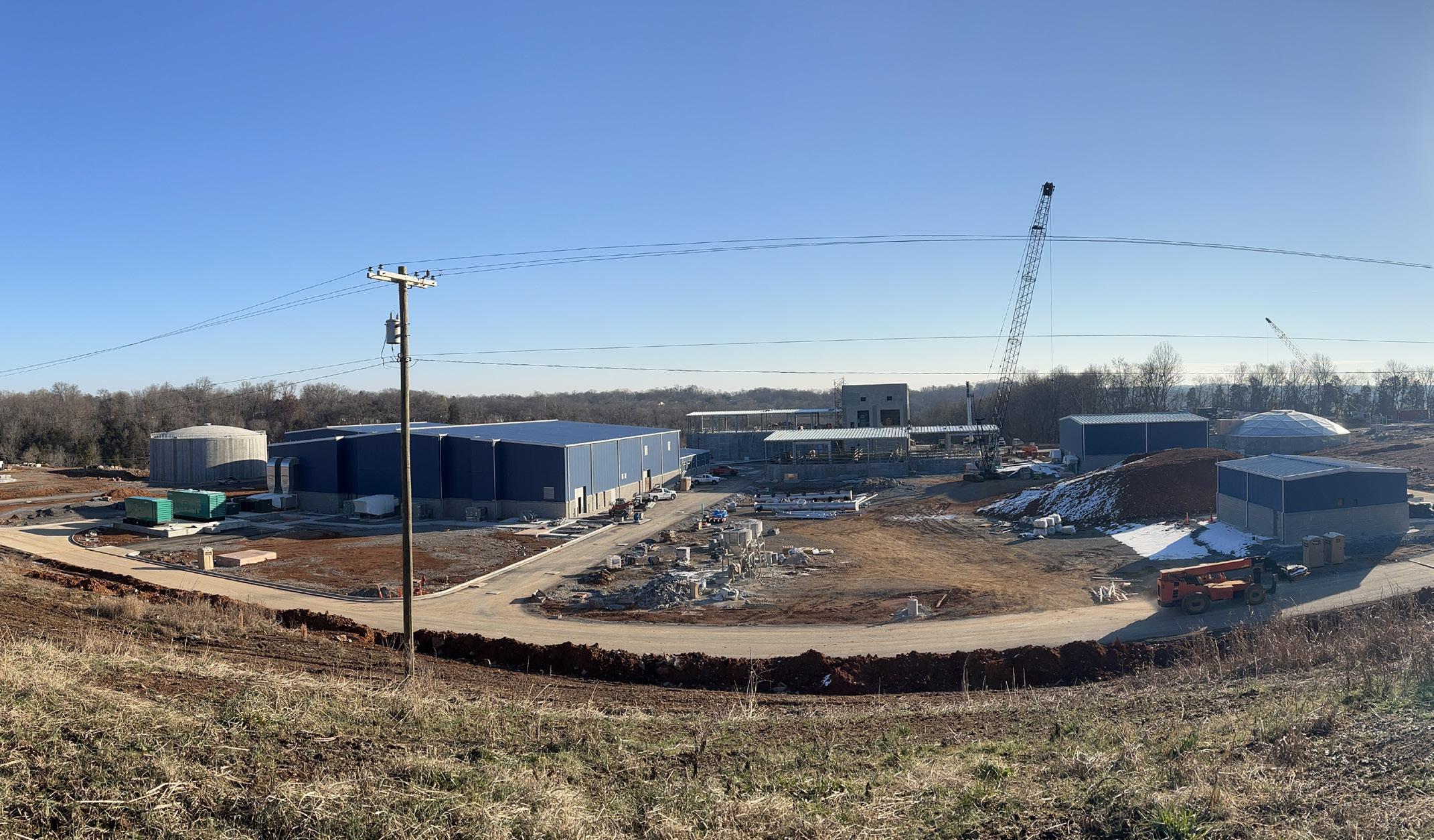
The Clarksville Gas & Water Department is making significant progress on two key projects. One will dramatically improve water capacity for the rapidly growing city, while the other will create greater efficiencies in wastewater treatment.
Clarksville is gaining a second water treatment plant, this time in north Clarksville. Meanwhile, advanced thermal dryer technology is being added at the city’s wastewater treatment plant.
“The North Clarksville Water Treatment Plant is vital in providing needed redundancy to our existing customers, as well as additional capacity for
our growing customer base,” General Manager Mark Riggins says. “This project will also lay necessary groundwork for additional, future expansions as dictated by demand.
“The thermal dryer project at our Wastewater Treatment Plant is an innovative step within the progressive process of waste elimination that will significantly reduce the odor and volume of wastewater byproduct currently delivered to our local landfill.”
The ongoing North Clarksville Water Treatment Plant Project is scheduled for substantial completion in the summer of 2026. This $210 million project,
designed by Smith Seckman Reid, Inc. and Hazen & Sawyer and built by Judy Construction, includes a 12 million gallons per day membrane filtration water treatment plant, as well as a raw water pump station and intake from the Cumberland River.
While the raw water pump station, intake and related components are designed to serve the future build-out of the plant, the treatment portion of the plant is designed for two subsequent 12 MGD additions—for an ultimate plant capacity of 36 MGD.
The ongoing Wastewater Treatment Plant Biosolids Thermal Dryer Project is
on schedule for substantial completion by the close of this fiscal year.
This $53 million project, designed by Hazen & Sawyer and built by Cumberland Valley Contractors, includes a six-story thermal dryer facility, west plant drain pump station, east plant water pump station, sludge screen building and solids odor control to dry the biosolid sludge currently produced to a pelletized Class A biosolid
potentially suitable for beneficial reuse.
The department was awarded a $15 million American Rescue Plan grant for this project, of which 90% has been received to date. The remaining 10% will be collected upon project completion.
Clarksville Gas & Water provides water and wastewater services to an estimated 225,000 citizens in Clarksville and Montgomery County. The utility also provides natural gas service to
surrounding counties in Tennessee and Kentucky, including the Fort Campbell, Kentucky, military installation.
The utility management team oversees the operations of the natural gas, water and wastewater systems to ensure essential utility services meet current and future demands of a rapidly growing community—all while adhering to strict federal and state regulatory mandates.
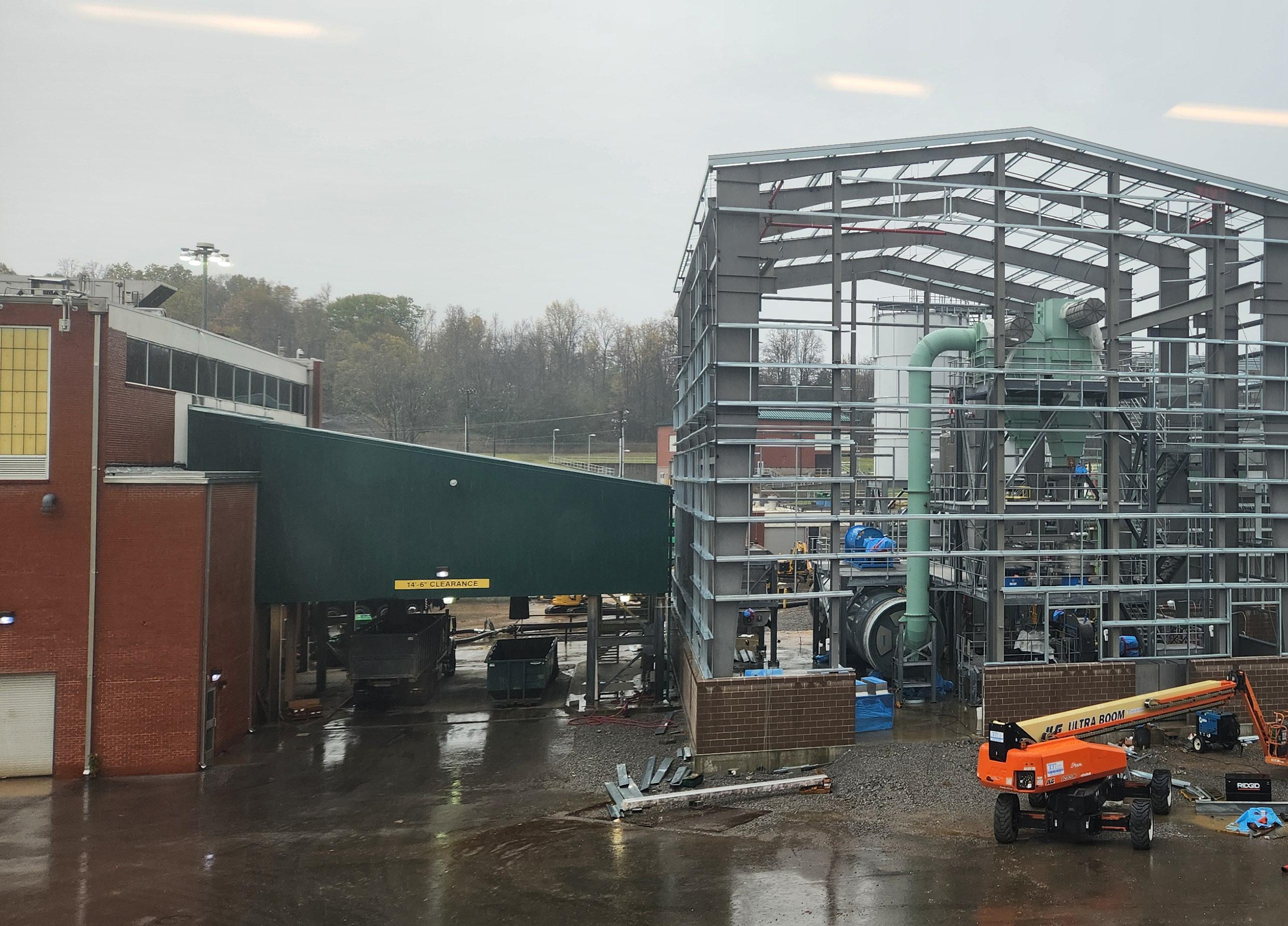

Recipes by Gertrude Treadaway
PHOTO BY KATIE WILCOX
Minestrone
2 teaspoons olive oil
1 cup diced carrots
1/2 cup diced celery
1/2 cup chopped onion
4 garlic cloves, minced
32 ounces chicken broth
28-ounce can petite diced tomatoes
1 tablespoon tomato paste
15-ounce can white beans, drained and rinsed
15-ounce can red kidney beans, drained and rinsed
Parmesan cheese rind
1/2 teaspoon kosher salt
1/4 teaspoon fresh black pepper
1 fresh rosemary sprig
2 bay leaves
2 tablespoons chopped fresh basil
1/4 cup chopped fresh Italian parsley
1 medium zucchini, diced
2 cups baby spinach, chopped kale or chopped collard greens
Salt and pepper, to taste
Parmesan cheese and red pepper flakes for garnish
Heat oil in a large Dutch oven or pot over medium-high heat. Add the carrots, celery, onion and garlic. Stir. Saute until tender and fragrant, about 15 minutes.
Add broth, tomatoes, tomato paste, beans, cheese rind, salt, pepper, rosemary, bay leaves, basil and parsley. Bring to a boil. Cover. Cook on low for 40 minutes.
Remove the bay leaves, rosemary and Parmesan rind. If you prefer a thicker soup, pulse a few times with an immersion blender.
Add the zucchini and spinach. Cover. Simmer until the zucchini is tender, about 8 to 10 minutes. Season to taste with salt and black pepper. Garnish with Parmesan cheese and red pepper flakes.
16 ounces Italian sausage links, medium or hot
6 slices bacon
¾ cup chopped onion
1½ teaspoons minced garlic
2 tablespoons chicken soup base
Heat the oven to 300 F.
1 quart water
2 large potatoes, cut into 1/4-inch slices
2 cups kale, washed, dried and shredded
1/3 cup heavy whipping cream
Parmesan cheese
Place sausage links on a sheet pan. Bake for 25 minutes or until cooked through. Cut links in half lengthwise, then cut at an angle into 1/2-inch slices.
Cook bacon and onion in a large saucepan over medium heat until onion is almost clear. Remove bacon and crumble. Set aside.
Add garlic to the pan with the onion. Cook together for about 1 minute. Add chicken soup base, water and potatoes. Simmer for 15 minutes. Add bacon, sausage, kale and cream. Simmer for about 5 minutes. Top with Parmesan cheese before serving.
6 cups chicken broth
2 boneless chicken breast halves, cooked and cubed
6-ounce package long grain and wild rice blend, quick-cooking version with seasoning packet
1/2 teaspoon black pepper
1/2 cup all-purpose flour
3/4 cup butter
1 cup carrot, diced
1 cup celery, diced
1 cup onion, diced
3 cups half-and-half
Open rice package. Set aside the seasoning packet. In a small bowl, combine pepper and flour. Set aside. In a large pot over medium heat, combine broth and chicken. Bring to a boil, then stir in rice. Cover, and remove from heat.
In a medium saucepan over medium heat, melt butter. Add carrots, celery and onion. Saute for 5 minutes. Stir in the contents of the seasoning packet. Continue cooking vegetables until softened, about 5 minutes.
Add seasoned flour gradually while constantly stirring to form a roux. Saute roux for 3 to 4 minutes to cook out raw flour taste.
Whisk in cream, a little at a time, until fully incorporated and smooth. Cook until thickened, about 5 minutes. Stir cream mixture into broth and rice. Cook over medium heat until heated through and rice is done, 15 to 20 minutes.
2 large onions, chopped
3 tablespoons butter
2 tablespoons all-purpose flour
2 cups water, divided
4 cups chicken broth
2 medium potatoes, peeled and diced
11/2 cups mashed potato flakes
1/2 pound sliced bacon, cooked and crumbled
3/4 teaspoon pepper
1/2 teaspoon salt
1/2 teaspoon dried basil
1/8 teaspoon dried thyme
1 cup half-and-half
1/2 cup shredded cheddar cheese
2 green onions, sliced
In a large skillet, saute onions in butter until tender. Stir in flour. Gradually stir in 1 cup water. Bring to a boil. Stir for 2 minutes or until thickened. Transfer to a 5-quart slow cooker.
Add the broth, potatoes, potato flakes, bacon, pepper, salt, basil, thyme and remaining water. Cover. Cook on low for 6 to 8 hours or until potatoes are tender. Stir in cream, and heat through. Garnish with cheese and green onions.
4 tablespoons butter
1 small yellow onion, diced
1 stick of celery, diced
½ cup carrots, julienned
2 garlic cloves, minced
¼ cup all-purpose flour
4 cups chicken broth
2 cups half-and-half
½ teaspoon thyme
½ teaspoon mustard powder
1 pound boneless, skinless chicken breasts
16 ounces potato gnocchi
1 cup fresh spinach, roughly chopped
1 pinch red pepper flakes,
Salt and pepper, to taste
Melt the butter in a large pot over medium heat. Add the onions, celery and carrots. Cook until softened, about 5 minutes. Add the garlic. Cook for 1 more minute.
Add the flour, and stir to combine. Cook until the flour begins to turn a golden color, about 2 minutes.
Add the chicken broth and half-and-half in splashes, stirring to incorporate. Don’t add it too quickly, or you will break the roux. Add the thyme and mustard powder.
Add chicken breasts to the broth. Bring it to a gentle boil. Simmer until the chicken is cooked through, about 10 minutes. Remove the chicken and let it rest for 5 minutes. Dice the chicken, and add it back to the soup. Let the soup simmer until reaching the desired consistency. It will continue to thicken as it simmers.
Add the gnocchi. Simmer according to package instructions.
Reduce heat to low. Add the spinach, red pepper, salt and pepper. Simmer until spinach is wilted, about 1 minute.

Clarksville Gas & Water is looking for skilled and ambitious candidates to join our team of utility professionals.
We offer a competitive salary; a robust benefits package, including employer-paid retirement and holidays; on-the-job training and various paths for career advancement in a satisfying work environment. Please visit our job opportunities website or scan the QR code to learn more or to apply today.
Gas & Water job openings as of January 2025:
• Engineer I
• Gas Construction Worker
• Utilities Equipment Operator
• Water Construction Worker
• Wastewater Construction Worker
www.clarksvilletn.gov/
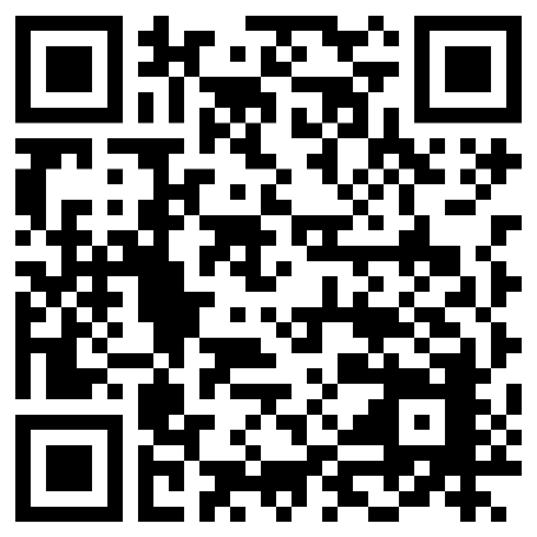
Certified Excellence
Join us in congratulating employees who earned a water or wastewater state board certification in their field of expertise. We applaud their efforts to prepare and pass their state exam to achieve a certification.
Grade IV Wastewater Treatment Operator
Davis Stack
Grade II Wastewater Collections System Operator
Andrew Milton
Tyler Sullivan
Kody Stapleton
Grade III Water Treatment Plant Operator
Scott Ryan
Justin Tisdale
Grade IV Water Treatment Plant Operator
Michael Pratas
Grade II Water Distribution Systems Operator
Nick Oliver
Michael Giaimo
William Hardin
Caden Trice
We also congratulate Jessica Biter, who successfully passed all exams and met criteria to earn the Certified Municipal Finance Officer state certification in December.
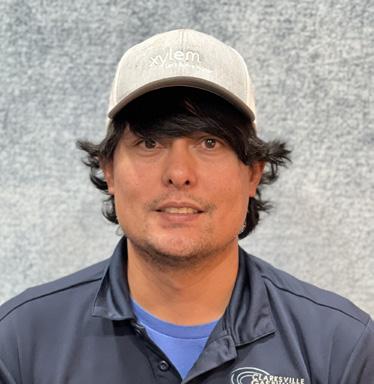

Congratulations to Eddie Eaken, Water Distribution Mechanic II, who was selected from an elite group of water professionals in the KY-TN Section of the American Water Works Association to attend its 2024-2025 Water Professionals Leadership Academy.
Pretreatment Wins Award of Excellence
Congratulations to Davis Stack and Josh Bent, who were presented the Clean Water Professionals Control Authority
Pretreatment Excellence Award at the Water Professionals Conference last fall.

Clarksville was one of two utilities recognized for their excellent pretreatment programs in Kentucky and Tennessee.
Water Environment Federation Award

Congratulations to our Wastewater Operations Challenge team members, who competed at the Water Environment Federation Technical Exhibition and Conference last fall, earning second place in the Collections System Event and ninth place overall in Division III.
The Clarksville team, Tennessee Thunder, competed against 28 international wastewater utility teams in separate skills events: maintenance, safety, lab analysis and collections system operations.
The department applauds their performance in the skills challenge and for representing Clarksville so well in the wastewater industry.
Clarksville Wastewater Operations Team members are Davis Stack, Andrew Browder, James Farmer, David Haller and Josh Bent.

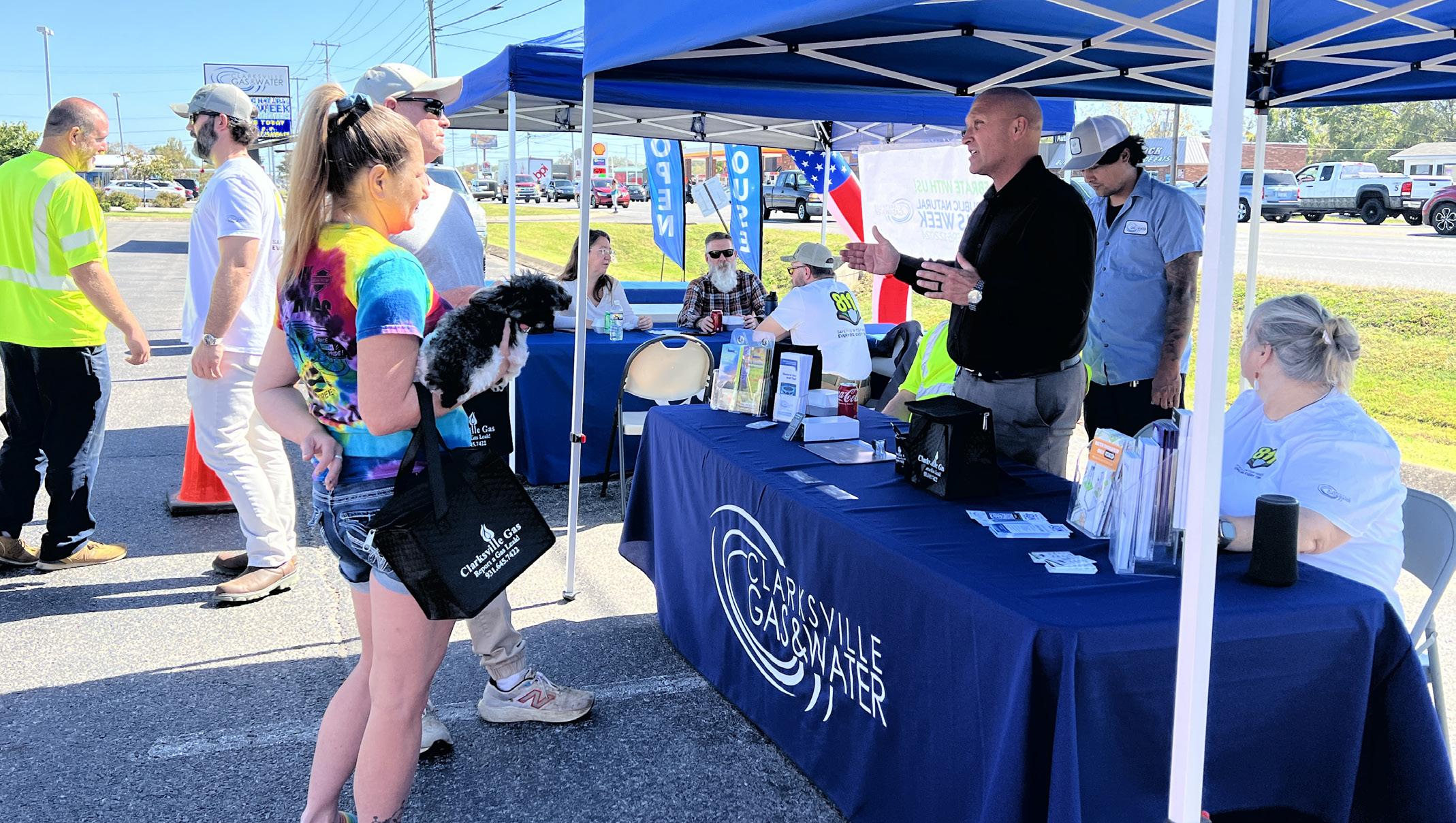
The Clarksville Gas Department celebrated Public Natural Gas Week, Oct. 6-12, with a customer appreciation day and information to raise awareness about the value of having a community-owned natural gas utility.
On Oct. 11, citizens joined the celebration at the Gas & Water main office at 2215 Madison St. to learn about department operations and ask questions. The event included a free lunch, giveaways and information to raise awareness about natural gas and Tennessee 811. There was also a full-color 2025 calendar for attendees.
“The Clarksville Gas Department is one of the most valuable assets to our community and neighboring communities as it provides the irreplaceable function of clean, affordable and efficient natural gas by our expert and knowledgeable employees,” Clarksville Gas & Water General Manager Mark Riggins says. Clarksville Gas, which delivered 4.71 billion cubic feet of natural gas to over 29,000 customers in fiscal year 2024, is among approximately 1,000 public natural gas systems serving more than 6 million customers nationally. These public
gas utilities are
not-for-profit retail distribution entities owned by and accountable to the citizens they serve.
Your public natural gas utility is good for the community for many reasons, including:
• Local Control: Having a public natural gas system gives a community local control over how gas is provided to homes and businesses. Decisions are made through citizen participation instead of being made in a distant city by people who do not understand local issues and who are primarily focused on profits instead of service.

• Competitive Costs: To offer fair and competitive rates, public natural gas systems operate as not-for-profit entities. Public natural gas systems do not face pressure to pay dividends to stockholders.
• Economic Benefits: As a public natural gas system, we play a valuable role in helping the community broaden its tax base and, in turn, improve the local economy and increase jobs.

Public natural gas systems ensure that local dollars stay at home.
• Customer Service: As a not-for-profit entity, we focus on service not profits. Public natural gas systems are an integral part of a community. We maintain a close relationship with our customers and, as a result, we are successful in meeting our customers’ needs.
Thank you for supporting Clarksville Gas. Our mission is to continue to bring

safe, reliable natural gas service into your homes and businesses. We also hope you join us in supporting natural gas as a premier energy source for our country. As the cleanest burning fossil fuel, natural gas can help us achieve energy security and build a more competitive economy.
More information about the benefits of natural gas may be viewed at clarksvillegw.com or call 931-645-7422.



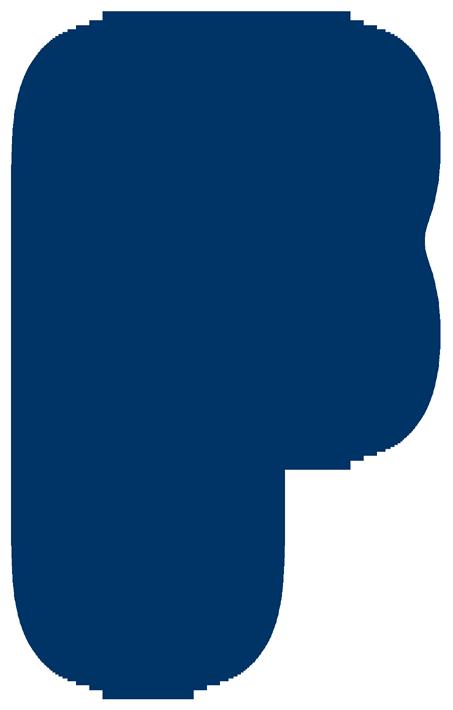
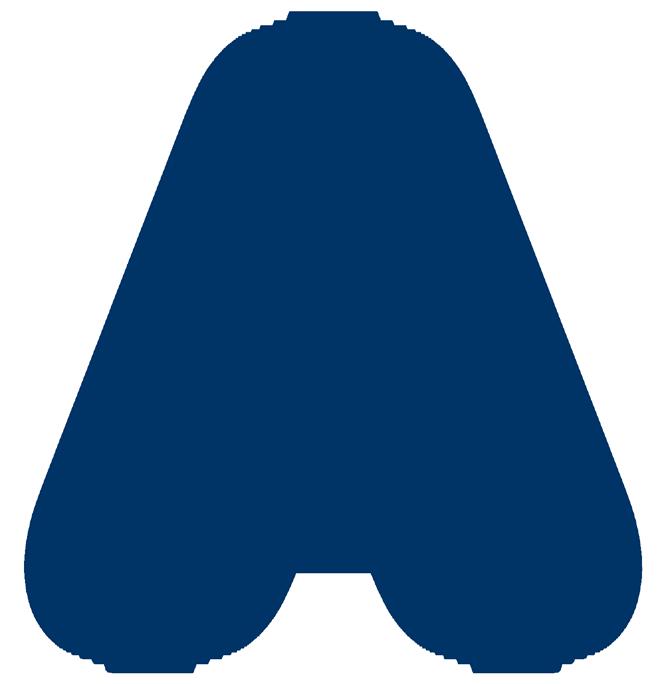

We have the answers to your questions regarding gas, water and sewer service, system operations, bills, or other related issues.
How can I tell if I have a water leak?
When checking for a water leak, first turn off all faucets and any equipment that uses water in your home. Next, find your water meter.
Your water meter is generally located near the curb in front of your home, close to the sidewalk or street. For a corner lot, it may be on the side of your home. Water meters are typically housed in a concrete or plastic box that may be marked “water meter,” as shown in the photo below.

Carefully remove the lid by using a tool such as a large screwdriver or pliers. Look out for insects or others critters that may be using your meter box as their home.
Your water meter has a leak indicator. This red triangle rotates when water is moving through the meter, as shown in the photo below. If all water fixtures and appliances are off in your home and the leak indicator is turning, you have a leak. The speed at which the leak indicator turns indicates how large the leak is.
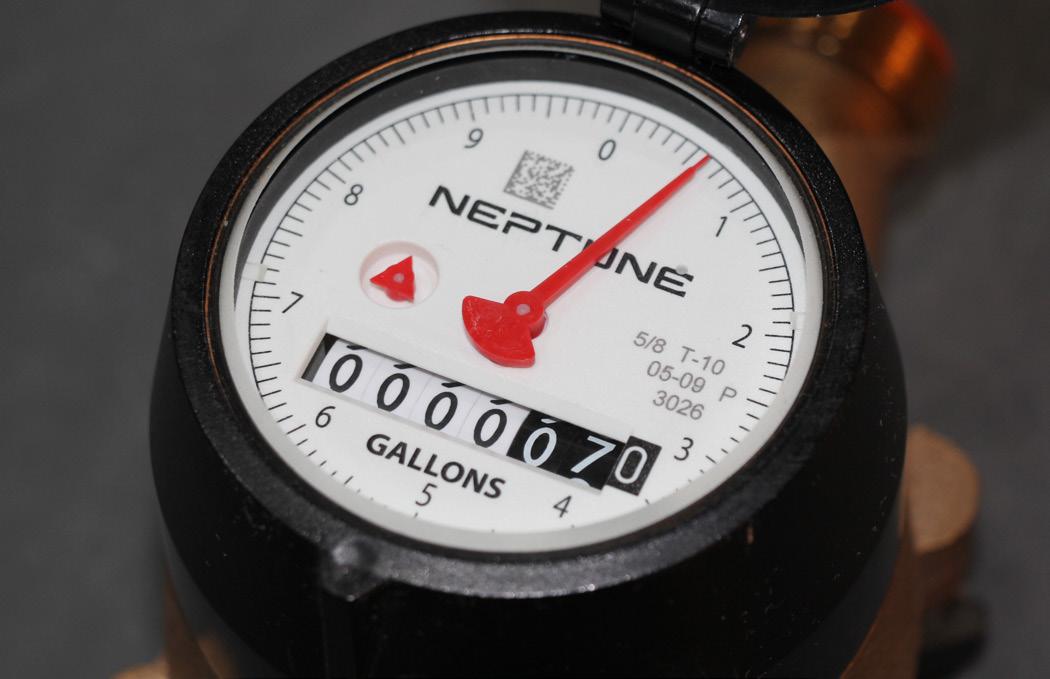
Do not ignore even the smallest of leaks, as this water adds up. For instance, a leak of just 1/16 of an inch in size —roughly the circumference of a toothpick—can pass over 24,000 gallons of water in just one month.
Why is the sewer portion of my bill so much higher than the water portion?
If you have both water and sewer services with us, you will notice the sewer charge is substantially higher than the water. This is because most facets of the sewer system and treatment are more complex and therefore more challenging in nature.
For instance, most of the sewer system and its services use gravity, flowing away and downhill from your home toward the main and ultimately the treatment plant. Every time this flow encounters a hill, it must be collected and pumped over the hill.
This occurs multiple times throughout the system until it reaches the treatment plant, each time expending energy equaling additional costs. While the water system has similar booster stations, there are far fewer because the water is under pressure from the water treatment plant and elevated tanks.
Another example is the difference in the treatment processes of water and sewer. Consider an over-simplified description of each process. Imagine taking water from the Cumberland River, straining and treating it with chlorine and other chemicals, ultimately making it clean drinking water. Now, think about sewer and everything that goes down household drains, including what you flush in toilets. Imagine straining it, treating it with chlorine and other chemicals and then treating it again to remove those same chemicals to bring it to a cleaner state than before when reintroduced into the Cumberland River.
A simple comparison of the sheer size of each plant, or the area each plant encompasses with its operations, further displays the difference in processes and required effort to carry out this service. The water plant site encompasses approximately 12 acres, while the sewer treatment plant site is approximately 28 acres.
Email gasandwater@cityofclarksville.com, or use the provided QR code, to submit service- or industry-related questions.

Clarksville Gas & Water has you covered with these essential steps to protect your water pipes and plumbing fixtures when temperatures turn downright cold.
• Close foundation air vents.
• Unhook hoses from outdoor faucets and yard meters.
• Identify exposed piping or outside faucets that need insulation or heat tape to avoid freezing. Insulate or tape them.
• Open sink cabinet doors to allow heat to circulate around pipes, especially those on exterior walls.
• Turn on a trickle of water from the faucet to help prevent pipes from freezing.
• Winterize or protect backflow preventers.
• Find, then repair or caulk, any opening that allows the flow of outside air inside.
• Keep water meter lids closed.
• Drain water from irrigation lines.
• When away, set the thermostat no lower than 55 F. Have someone check the home daily.
• Know where the household water shut-off valve is in case of a household water pipe leak.
• Clean and inspect natural gas heating systems routinely to increase safety and efficiency.
Gas & Water is prepared to help with water emergencies around the clock. However, there may be longer response times during high-volume customer calls for help.
We value you, and technicians respond to each call as quickly as possible. One thing to keep in mind: Gas & Water service technicians cannot repair
household water leaks, customer lateral line leaks or natural gas appliances. Call a licensed plumber for these repairs.
If you heat your home or business with natural gas, pay attention to how your natural gas appliances perform. If you detect a strong odor of natural gas, which smells like rotten eggs, take the following safety steps.
• Leave the premises at once while leaving doors open for ventilation.
• From a different location, call Clarksville Gas & Water at 931-645-7422. After hours—from 4:30 p.m. to 8 a.m.—and on weekends and holidays, call 931-645-0116. Call 911 if the odor is strong.
• Do not turn electrical switches or devices on or off or use a phone or flashlight. An electric spark could ignite any natural gas in the air. To report a water leak, call 931-645-7400.
Visitwww.cityofclarksville.com/234/ColdWeather-Precautionsformorecold-weathertips.
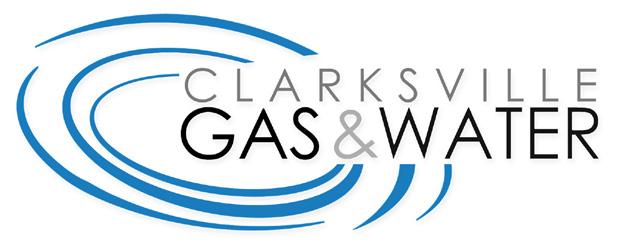
OFFICE
2215 Madison St.
Clarksville, TN 37043
PHONE
931-645-7400
888-800-4020
OFFICE HOURS
8 a.m. to 4:30 p.m.
Monday-Friday EMERGENCY/ AFTER-HOURS PHONE
931-645-0116
REPORT A GAS LEAK Day: 931-645-7422
After Hours:
931-645-0116 or 911
If a strong natural gas odor, call 911!
The Honorable Joe Pitts CHIEF OF STAFF
James Halford
GAS & WATER COMMITTEE
Deanna McLaughlin, Chair
Stacy Streetman
Travis Holleman
Jerry Haywood
Carlos Peters
GENERAL MANAGER
Mark Riggins
ASSISTANT GENERAL MANAGER
Patrick Chesney
CHIEF UTILITY ENGINEER
Garth Branch, P.E.
CHIEF FINANCIAL OFFICER
Dawn Thomack
CUSTOMER SERVICE MANAGERS
Brandy Jarrell
Eddy Glenn
GAS DIVISION MANAGER
Troy Jones
WATER DIVISION MANAGER
Chris Lambert
WASTEWATER DIVISION MANAGER
Brian Shelton
OFFICE CLOSURE
Monday, Feb. 17
Presidents Day









